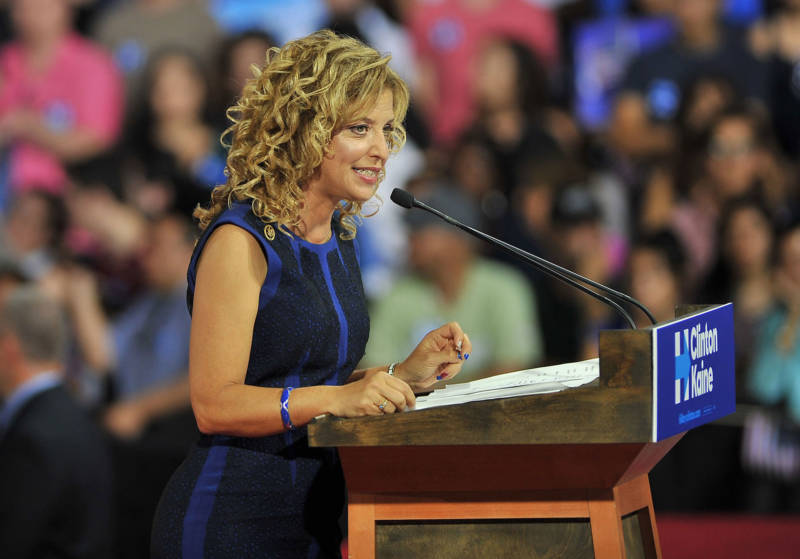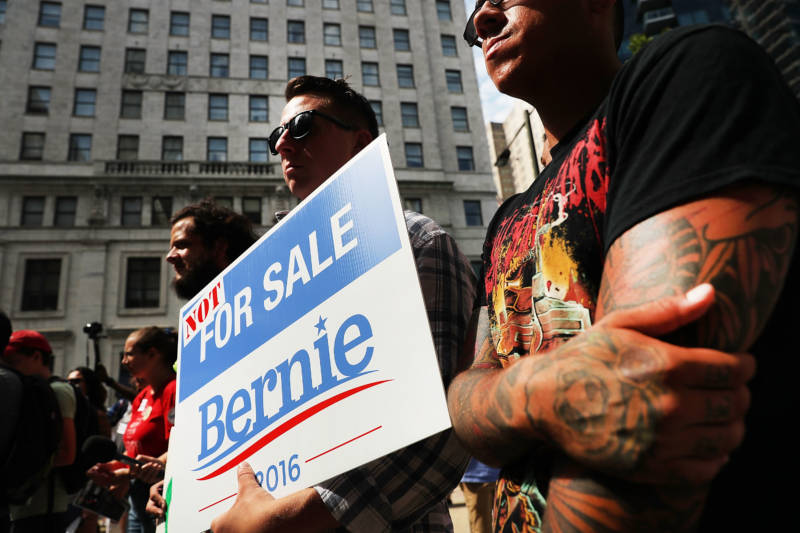"A compromise of this nature is something we take very seriously, and the FBI will continue to investigate and hold accountable those who pose a threat in cyberspace," it said.
Clinton campaign officials pointed the finger for the hack at Russian military intelligence agencies. They accused Russia of trying to meddle in the U.S. election and favoring GOP nominee Donald Trump.
"We don't have information right now about that, but what we have is a kind of bromance going on between Vladimir Putin and Trump, which is distinct from this leak," Clinton adviser John Podesta said in an MSNBC interview.
Trump dismissed the suggestion in a tweet: "The joke in town is that Russia leaked the disastrous DNC emails, which should never have been written (stupid), because Putin likes me."
It wasn't immediately clear how WikiLeaks received copies of the internal Democratic emails. Party officials learned in late April that their systems had been attacked after they discovered malicious software on their computers.
A cybersecurity firm they employed found traces of at least two sophisticated hacking groups on their network — both of which have ties to the Russian government. Those hackers took at least a year's worth of detailed chats, emails and research on Trump, according to a person knowledgeable about the breach who wasn't authorized to speak publicly about the matter.
The emails re-emphasized a rift that threatens to undermine the Democrats' attempt to display four days of focus on putting Clinton in the White House.
The party announced Monday it would kick off its convention with a lineup of speakers aimed at easing the tensions. Massachusetts Sen. Elizabeth Warren, a progressive favorite, will deliver the convention keynote. Sanders and first lady Michelle Obama will also take the stage.
Republicans relished Democrats' pre-convention tumult, just days after they bumped and bumbled through their own gathering. Trump declared on Twitter: "The Dems Convention is cracking up."
Resistance to Clinton was on display during a demonstration Sunday as many thronged to a main thoroughfare and chanted, "Hell no, DNC, we won't vote for Hillary." Still many delegates, and Sanders himself, said they planned to support Clinton, mindful of the Republican alternative.
Ohio's Michael Skindell, a Sanders delegate, said Monday he planned to "strongly support the nominee of the party."
Party leaders tried to make Wasserman Schultz's exit as graceful as possible. Clinton and President Obama both praised her.
Clinton was campaigning in Charlotte, North Carolina, on Monday. Ahead of her speech to the Veterans of Foreign Wars, she secured the endorsement of retired Gen. John Allen, former deputy commander of U. S. Central Command and a former commander of the International Security Assistance Force, overseeing NATO troops in Afghanistan
"I have no doubt that she is the leader we need at this time to keep our country safe, and I trust her with that most sacred responsibility of commander in chief," he said.
Clinton is within days of her long-held ambition to become the party's official presidential nominee. She will formally accept the nomination on Thursday. Obama will speak on Wednesday night. Other high-profile speakers include former President Bill Clinton and Vice President Joe Biden.
Overcoming the lingering resentment among Sanders supporters may become the task of the week.
Kenny Madden, a Sanders delegate from Kentucky, said he doesn't "think there can be anything Bernie can say that will bring people together. I think that's going to have to come from the other side."
Associated Press writers Chad Day and Hope Yen in Washington, Alan Suderman in Richmond, Virginia, Julie Carr Smyth in Columbus, Ohio, and Alex Sanz and Megan Trimble in Philadelphia contributed to this report.

